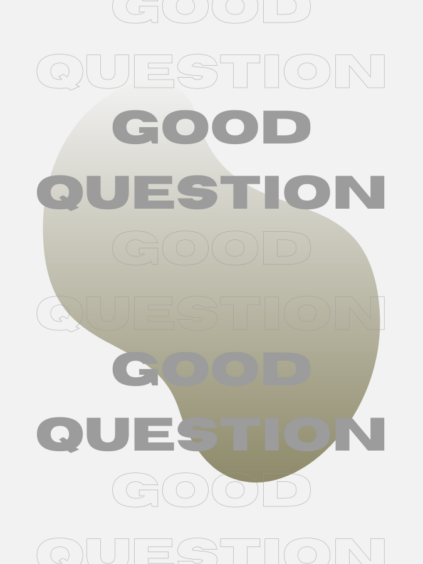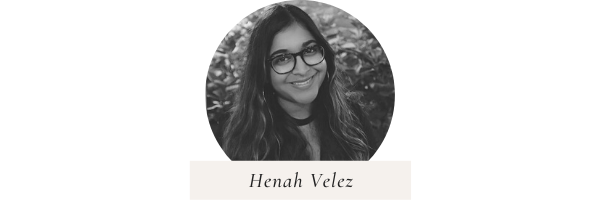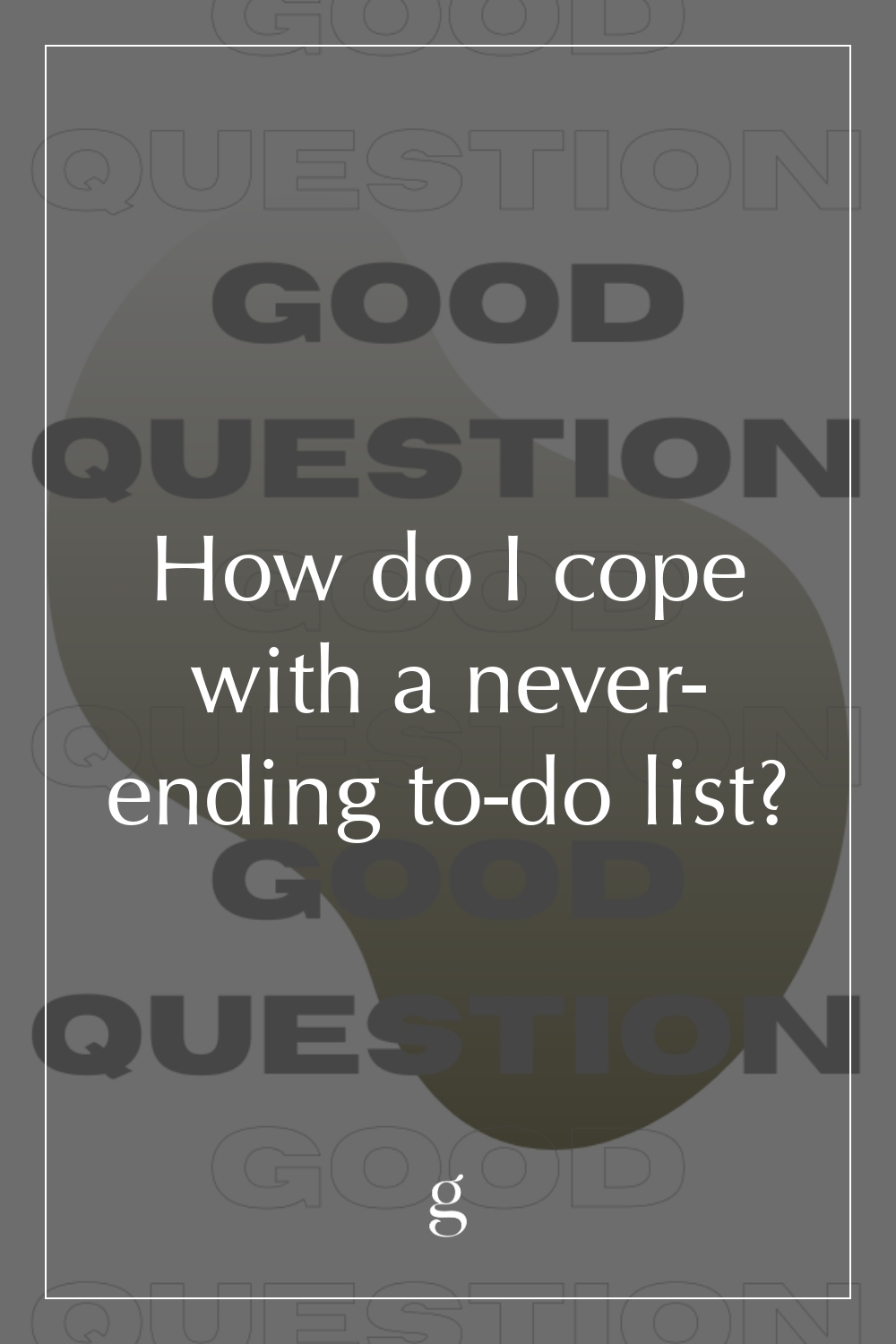
How do I cope with a never-ending to-do list?
How do you cope with life feeling like a never-ending to-do list? It may be an unrealistic expectation, but I long to achieve ‘to-do list zero’ for even just a weekend. However, no matter how hard I try, new items just keep piling on to the ol’ to-do list, which makes me feel like I’m constantly failing.
I can absolutely relate. For me, there are few moments as fulfilling as crossing a task off of my list. I am rigidly Type A, and there is a certain satisfaction in knowing I’ve been productive. But at the same time, needing to complete my to-do list brings out my inner perfectionist and the feeling that I must “do it all.” When I don’t, the feeling quickly transitions into, “You didn’t get what you needed done and now you’re perpetually behind,” or even worse, “You’re lazy.” Is that how you might be feeling too, whenever there are still items left to work on?
I have a close friend who, like both you and me, regularly deals with an ongoing to-do list. In fact, she has a running joke that she will inevitably die with unfinished to-dos. Which is to say, many of us find ourselves with all sorts of tasks that we’ll certainly never finish. But let’s dig deeper into the feeling that you’re “constantly failing.”
Another friend recently recommended a book called Drop the Ball by Tiffany Dufu to help reframe this perspective. (Ironically, it’s on my “to read” list now, too.) Rather than trying to finish everything, Dufu advocates on choosing only what’s important or worthy of our limited time and energy and letting go of the rest.
We may never get to redecorating our guest bedroom or responding to that one email, and that’s okay. If we can focus only on the most important action items instead, we can learn to look at “to-dos” as a place of inspiration and success, rather than anxiety, overwhelm, or the aforementioned failure. In a pandemic, perhaps our most pressing tasks can be around nourishment, rest, and empathy; anything else is a bonus.
“In a pandemic, perhaps our most pressing tasks can be around nourishment, rest, and empathy; anything else is a bonus.”
In any case, there are tips you can use to boost your productivity for when you do need to get things done. Here are a few:
-
Reduce your daily list from ten items to two or three or even one. You’ll likely get more than one item done, but it relieves you of the pressure if you don’t. Most importantly, an urgent task is complete!
-
Using a calendar or planner, block out time to work on specific tasks the same way you might with a doctor’s appointment or gym class. I live and breathe by my own Google Calendar.
-
If you have a close friend, significant other, or work-friend who has a similarly daunting list, team up and try to work on your tasks at the same time. That way, you can both be productive while championing one another on and taking breaks as necessary.
“What if we wrote down tasks that were focused on joy or making a loved one laugh?”
And if you start to feel overwhelmed or like a failure, remember that productivity is relative. What does make you feel accomplished that isn’t related to work? What if we wrote down tasks that were focused on joy or making a loved one laugh? Reframing how we think of our “to dos” for the most important parts of life may still feel never-ending but in a more fulfilling way.
If all else fails, try the “RAIN Method” as a form of mindfulness and self-compassion. RAIN stands for Recognize, Allow, Investigate, and Natural Awareness. Recognize what is going on (i.e., being harsh or hard on ourselves in the moment), allow and acknowledge the feeling, investigate it with a sense of kindness and empathy (how you’d talk to your best friend!), and then bring a natural awareness that we are not our limitations or limiting beliefs.
You are not more or less valuable (or more of a failure!) based on your to-do list and what you get done. Being productive doesn’t mean we are necessarily better or more lovable than if we did nothing. You are worthy just by existing.
Read more Good Questions here. Have something on your mind? Click the button below 👇 ✨
RELATED READING
Henah Velez (she/her) is an Editor at The Good Trade. Prior to her work here, Henah worked in the nonprofit sector for more than seven years including at She’s the First, a nonprofit fighting for a world where every girl chooses her own future. Based out of Santa Barbara, you can usually find Henah roaming around local downtowns and small businesses, hanging with her pets, or traveling as much as possible.


